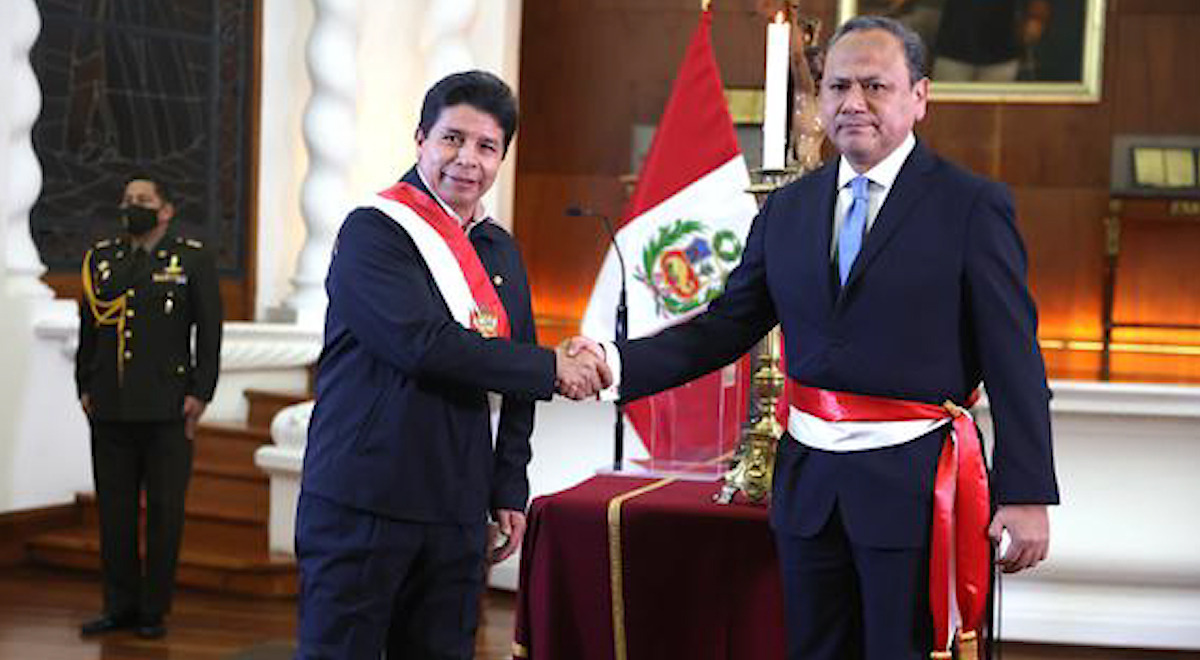Former president Pedro Castillo intended to nullify the investigation for allegedly having collaborated in the leaks of John Silva, Bruno Pacheco and Friar Vasquez.
The Permanent Criminal Chamber of the Supreme Court rejected the former president’s appeal Pedro Castillo against decision in the first instance that declared unfounded the protection of rights with which it sought to annul the tax investigation for the alleged crime of personal concealment and criminal organization. This case began after the former president dismissed the former Minister of the Interior Mariano Gonzalez after forming the PNP Special Team, led by Colonel PNP Harvey Quilted.
Specifically, Castillo Terrones wanted the Judiciary to annul González Fernández’s testimonial statement of July 20, 2022, one day after he was removed from office and declared in an interview with Panamericana that the Former president has “a commitment” to corruption.
After receiving the statement from the former head of the Ministry, the national prosecutor, Patricia Benavidesbegan a preliminary investigation against Pedro Castillo for allegedly having collaborated in the leaks of the ex-minister John Silvathe former presidential secretary Bruno Pacheco and his nephew Fray Vasquez Castillo.
The legal defense of the ex-governor, the lawyer Eduardo Pachasquestioned the fact that González’s testimonial was taken before ordering the preliminary investigation, therefore, the lawyer asserts, the right to due process and defense would have been violated for not having been notified or having participated in the interrogation.
Then, Pachas would invoke article 117 of the Constitution, referring to the scenarios in which an acting head of state can be accused during his term.
Fundamentals of the Supreme Chamber
The Supreme Criminal Chamber presided over by the supreme judge Cesar San Martin dismissed the appeal of Castillo Terrones, alleging that the statement of the former minister González it was valid since it was used for the sole purpose of opening the preliminary investigation, but it has no procedural effect.
It is also recorded that, once the preliminary proceedings were installed, Mariano González was summoned again, now as a witness, for August 12 and September 3, 2022. In these acts, the former president’s defense was summoned.
“In the case of testimonial in court, what is central is the possibility of contradiction; The defendant must have an adequate and sufficient opportunity to challenge the evidence against him and to question the author of the same, at the time of the statement or later, without cutting back on the process. The latter is what has happened with the declaration of dates August 12 and September 3, 2022 ”, reads the resolution.
Regarding the argument that a sitting president cannot be investigated, the Permanent Criminal Chamber asserted that in previous cases it has already ruled and established that yes it is possible to do it preliminary to a representative, but not to formalize the preparatory inquiry. For this, the accusatory resolution of Parliament is required.
“Both institutions (preliminary proceedings and formalization of the investigation) are not opposed, but are integrated, so that the accusatory resolution of Congress is a condition or procedural requirement necessary to dictate criminal prosecution or formal indictment in jurisdictional headquarters,” they argue.
Therefore, they declared the appeal of Pedro Castillo and confirmed the decision of the supreme judge Juan Carlos Checkleyof the Supreme Court of Preparatory Investigation.
Supreme Court rejects Pedro Castillo’s appeal with which he sought to annul the Mariano González case. Photo: document


















